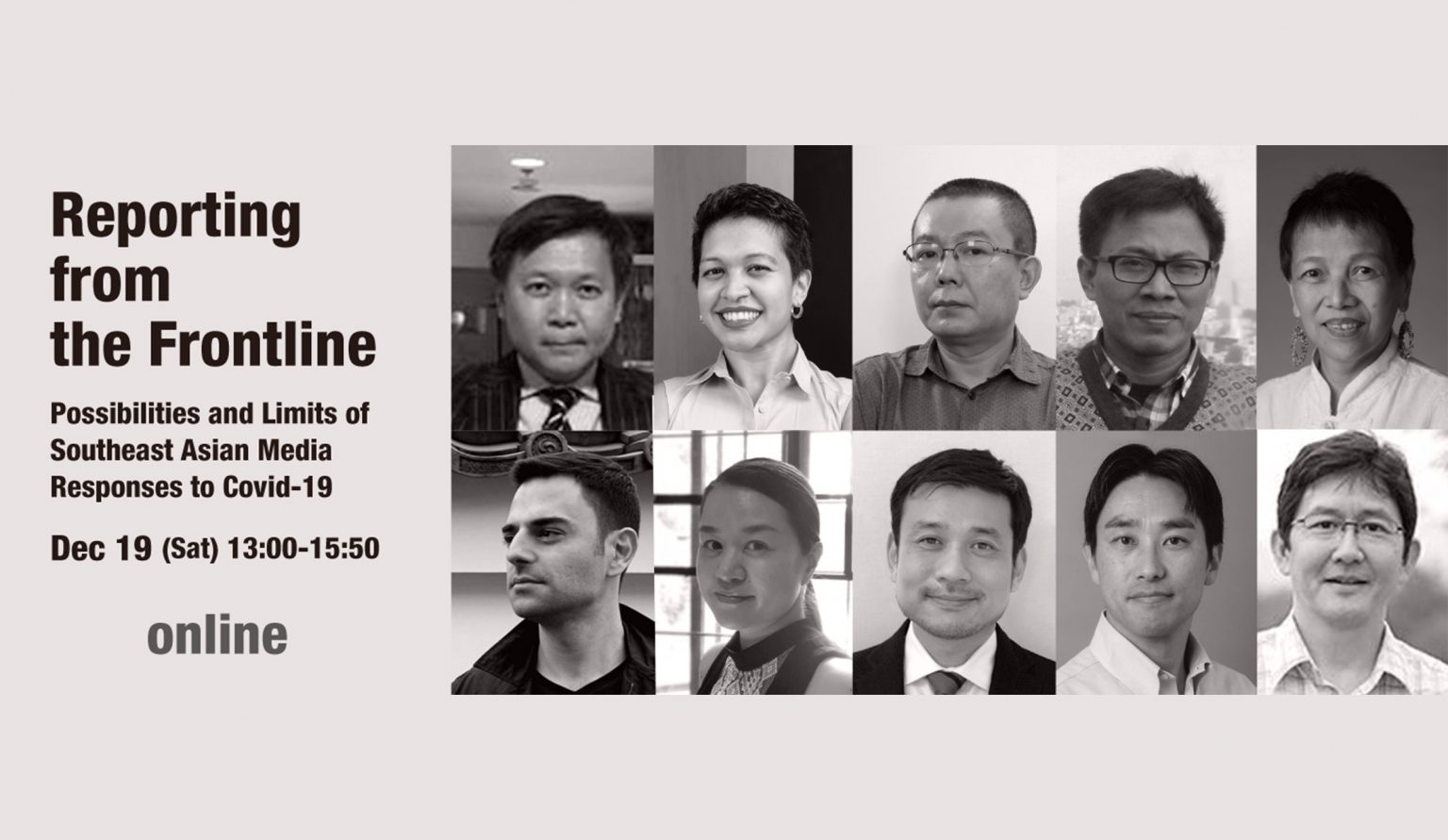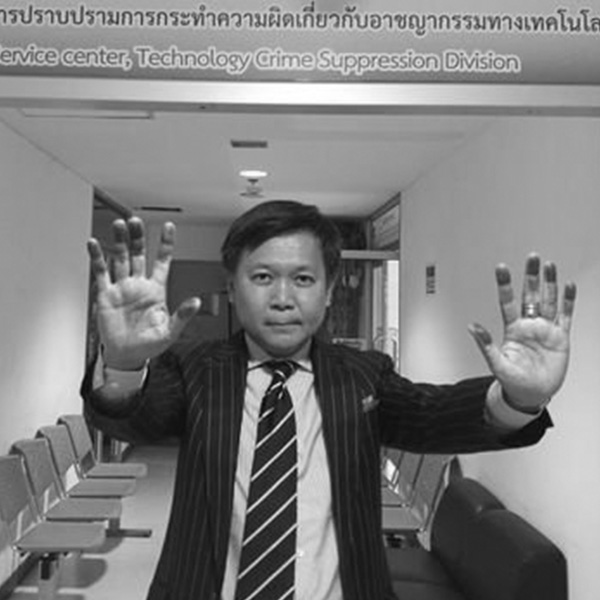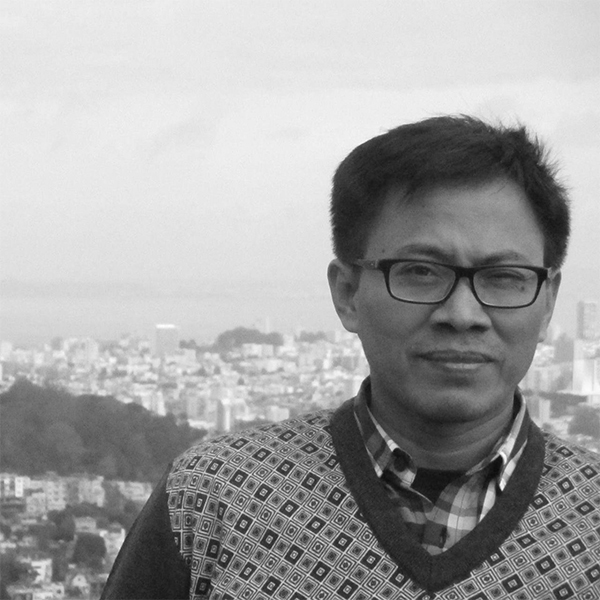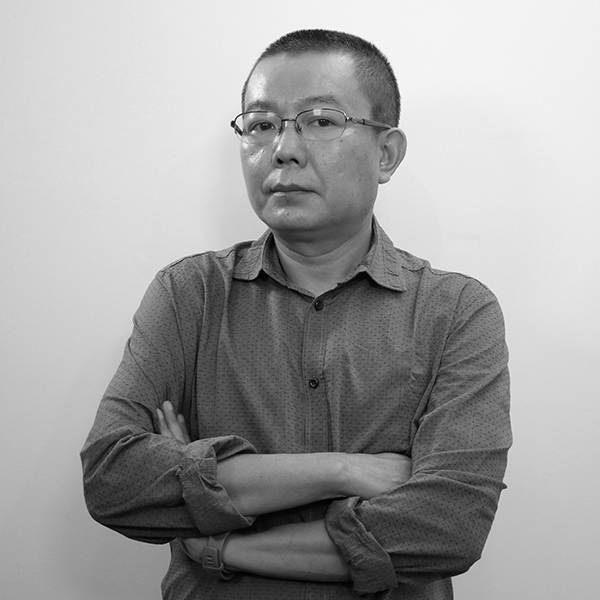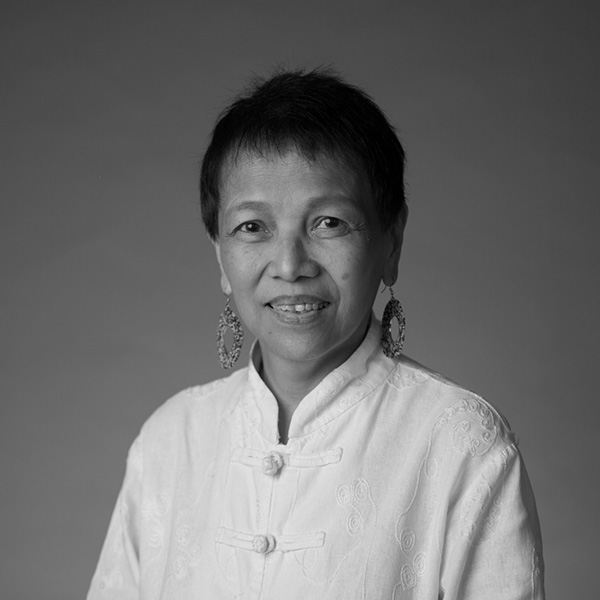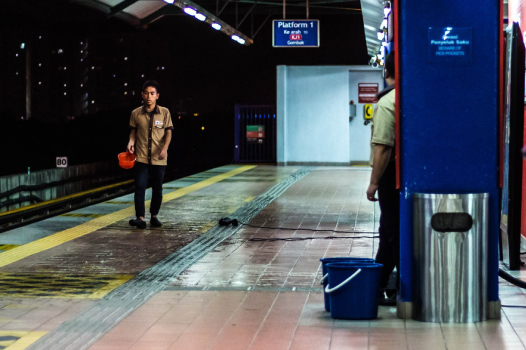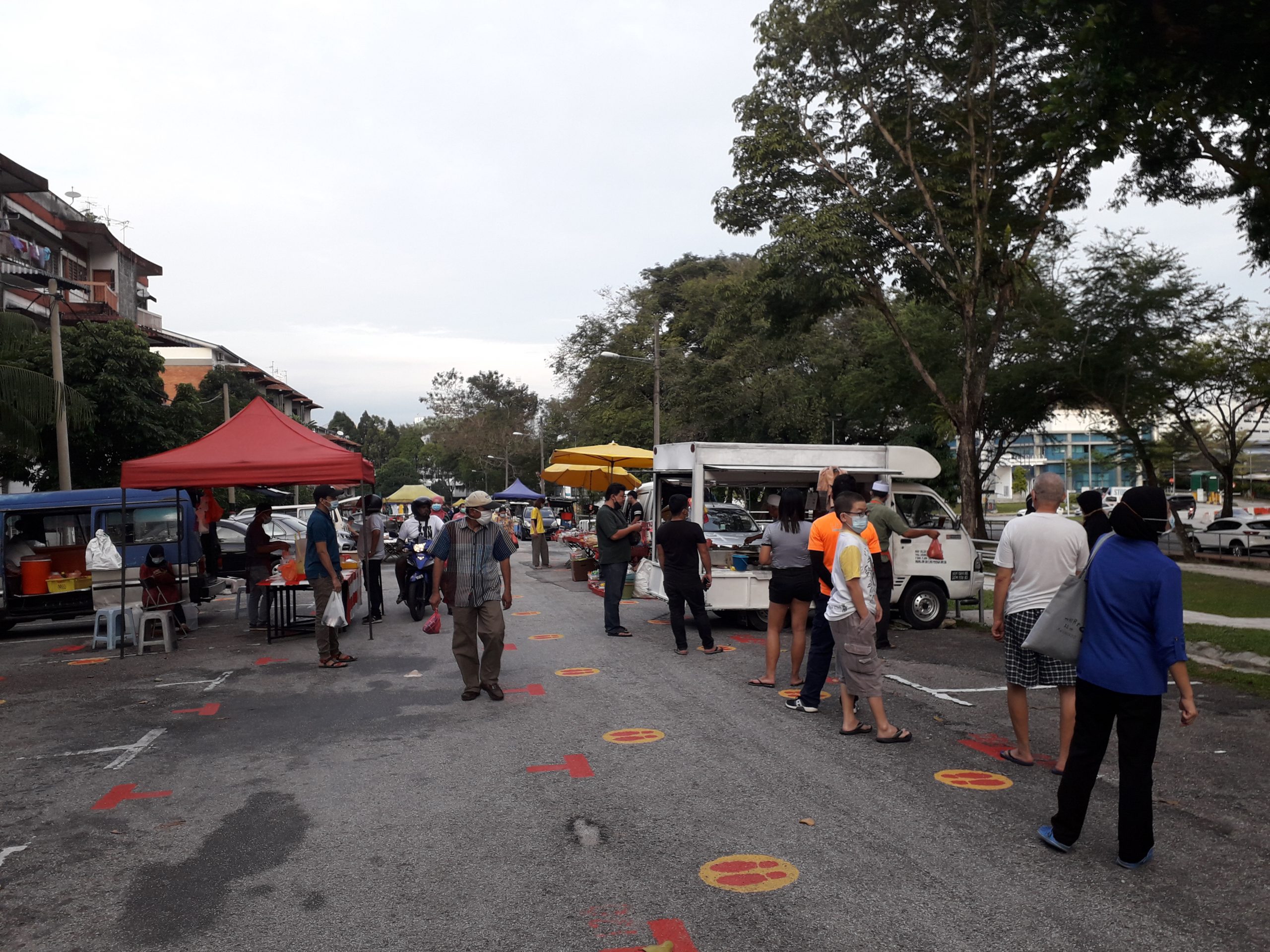Presentation
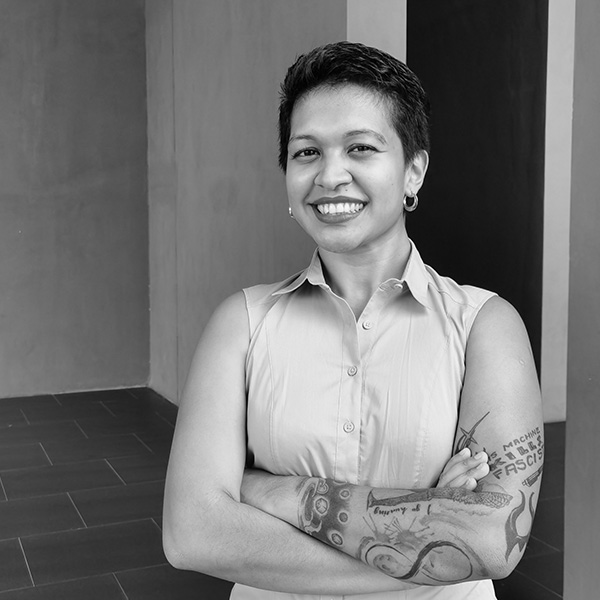 |
SpeakerTashny Sukumaran(The South China Morning Post) |
Abstract
2020 in Malaysia has been tumultous – from a political coup to state elections to several state governments falling and, most recently, a push from the administration to declare a political emergency as warring political parties and factions insist they command parliamentary support. Reporting on the Covid-19 public health crisis during this period then becomes more complicated, with the electorate accusing their leaders of politicking when they should be focused on the pandemic. In my presentation I will examine key events such as the May Day immigration raids, key government and opposition press conferences, the Sabah state elections and of course the initial political coup that kickstarted the year of instability.
2020 has been a tumultuous year for Malaysia. Like many nations, it has had its hands full battling the coronavirus pandemic. Yet, it has also faced unprecedented political instability, the erosion of civil liberties, and increasing vulnerability for oppressed minorities and women.
Malaysia’s first serious COVID-19 cluster emerged in February, after a large religious meeting saw scores of cases recorded (Sukumaran 19 March, 2020). Just weeks after, the ruling Pakatan Harapan administration – which came into power via the ballot box May 2018 – was turfed out following a political coup. The new Perikatan Nasional government, made up of splinter factions from Pakatan Harapan as well as members of the previous Barisan Nasional administration, were soon forced to declare a nationwide lockdown that saw businesses shuttered and people forced to shelter in place. The Royal Malaysian Police played a central role in enforcing civilian compliance, arresting hundreds daily.
Following this, case numbers were briefly under control – despite hefty economic consequences – until the Bornean state of Sabah was pushed into elections following attempts at a political power grab. The movements of voters and politicians saw numbers skyrocket, with Malaysia reporting a total of 83,475 cases recorded as of mid-December (Pfordten and Ahmad 15 December, 2020).
As the country moved from a full movement control order to more relaxed iterations: enhanced movement control orders, targeted movement control orders, relaxed movement control orders – an alphabet soup that, in brief, allowed business to resume, more socialising and interstate travel.
Meanwhile, politics remained fraught. A razor-thin parliamentary majority held by the ruling Perikatan Nasional coalition was fiercely defended, while party allies debated their loyalties. Pakatan Harapan, the strongest opposition in the nation’s history, pledged to dethrone the coalition with leader Anwar Ibrahim claiming a “strong, formidable and convincing” number of lawmakers had thrown their support behind him.
During this time the Malaysian populace became more restive, accusing politicians of prioritising power over hardy and robust governance. Oppressed groups were made more vulnerable during the year, claimed watchdogs, with little done to mitigate dire straits.
Migrant workers at the forefront
Home to several million documented migrant workers and many more undocumented, Malaysia’s laissez-faire attitude towards trafficking and people smuggling has earned it criticism in the US State Department’s annual Trafficking in Persons report, where it is placed on the Tier 2 watchlist.
Most recently, US Customs and Border Protection banned imports from Top Glove, a leading Malaysian listed company that produces protective gear including rubber gloves, over forced labour concerns. Although Top Glove has gone from strength to strength due to a rising demand for gloves against the backdrop of a global pandemic, the company’s treatment of migrant workers has come under severe scrutiny amidst reports COVID-19 infections amongst workers halting production output, poor accommodations and faulty safety protocols.
In early December, Human Resource Minister N. Saravanan criticised the factories for “deplorable” conditions after earlier defending Top Glove, and pledged to go after companies that 3 do not treat its foreign workers in accordance with the law (Ayamany 25 November, 2020).
Top Glove is not an outlier, say rights groups – since the pandemic, reports of foreign workers going hungry, not being paid, forced to work or living crammed like sardines in their accommodations have been rampant.
In May, the government launched immigration raids that saw thousands of migrant workers and even asylum-seekers arrested and locked up in detention centres, leading to coronavirus outbreaks due to overcrowding as well as a fatality – a 67-year-old man who was reportedly a stranded tourist. The International Detention Coalition reported that minors as young as fouryears-old had been placed in detention and tested positive for the coronavirus.
I was present at the first of these raids in a Covid-19 ‘red zone’ in downtown Kuala Lumpur on International Workers Day. One informant sent me a video of the police from his vantage point, while another told me he had been ordered to stop observing the police and shut his windows.
Soon after, I was summoned by the police for questioning regarding my coverage of the event. I was questioned on what I had seen at the scene, my definition of a human rights violation, and whether I was aware that some of the migrants targeted by state apparatus were undocumented.
During the May-June immigration swoops, the government said that detainees who did not have the coronavirus would be deported while those who tested positive would be treated and then subsequently deported. Meanwhile, others who commented on the matter – most notably broadcaster Al Jazeera – were questioned by the police. In Al Jazeera’s case, the government threatened to pull work permits and deported a migrant worker informant(Al Jazeera, 10 July 2020).
Civil liberties at risk
2020 also saw Malaysian civil liberties at risk of regression. In just one year, scores of activists, opposition leaders and journalists were investigated under a slew of laws to do with public order, ‘insult’ or alleged disinformation, including human rights defender and top lawyer Ambiga Sreenevasan, anti-corruption advocate Cynthia Gabriel, radio personality Patrick Teoh, refugee rights activist Heidy Quah, opposition parliamentarians Xavier Jayakumar and Sivarasa Rasiah, student activist Wong Yan Ke, and reporters from news portal MalaysiaKini and broadcaster Al Jazeera.
Watchdogs warned of a return to the ‘bad old days’ where the previous administration used archaic anti-free speech laws such as the Sedition Act and the Official Secrets Act liberally to clamp down on dissent, pointing at alarming statistics such as the tripling of investigations into allegedly seditious activity this year as compared to the last. These investigations act as a deterrent for criticism, said analysts, as well as serving as a distraction from issues of governance and policy. One such case, the banning of a book, on the 14th elections titled ‘Rebirth, Resistance and Hope in New Malaysia’ due to an “insulting” cover that may be “prejudicial to public order” saw all its contributors (including myself) questioned by the police on our intentions.
Government moves such as refusing to debate the national human rights commission’s annual report in report and defended use of the Sedition Act in the name of public harmony also attracted scrutiny. Certain media outlets are still not allowed to attend key press conferences, and ‘official’ WhatsApp groups run by political staffers wilfully exclude foreign press.
Civil society alliance CIVICUS listed Malaysia as an ‘obstructed’ space in a recent report, saying that the government had used the pandemic as a pretext to restrict civic spaces and that civil 4 society had not been to push back or mobilise effectively due to the restrictions on movement and gatherings (CIVICUS 2020).
At the same time, xenophobic hate speech directed towards refugees – particularly the Rohingya – increased during the lockdown months, with social media being the main battleground. Petitions in favour of refoulement were signed, and prominent activists were threatened with violence. However, action was not taken against these remarks, causing Malaysians to note not just perceived double standards in prosecution, but also a distinct us/them division where locals remained under state protection and oppressed foreigners did not.
Women in precarious situations
As with most societies, women form the backbone of Malaysian community – from unpaid care work to an over-representation in key industries affected by the movement control order.
Over the past year, rights groups such as the Women’s Aid Organisation noted an increase in distress calls to both its WhatsApp and phone hotlines, while reproductive rights groups said a 48% increase in calls from women seeking access to safe abortions had occurred during the lockdown.
Initially, the government’s response was lacklustre: the Women’s Ministry released a series of infographics suggesting women dress attractively, refrain from nagging and use a high-pitched, sweet voice like cartoon character Doraemon when speaking with their husbands.
Naturally, this advice was roundly criticised for its insensitive, victim-blaming approach to addressing domestic violence. Months later the government allocated 21 million ringgit to support and service centres for domestic violence survivors, although groups expressed the concern that the approach was a stopgap measure and not sufficiently holistic, recommending instead wellresourced crisis hotlines and more regular investment in domestic violence responses (Sheng 24 November, 2020).
Once again, in the face of the pandemic and strict distancing rules rights groups took innovative approaches to getting the word out, such as the Women’s Aid Organisation which set up a ‘Girls Take Over’ programme to allow youths to speak on key issues. One member of the network, 14-year-old Nadiah, noted that there wasn’t enough help for children going through domestic violence, compounded by “no national rules stating what services children who see violence at home should receive.”
What next for Malaysia?
There has been marked pushback from civil society organisations which have had to innovate in times of COVID-19. Online protests using the hashtag #MigranJugaManusia (migrants are also human) have proliferated, while rights groups Amnesty International launched its Unsilenced campaign this month: an online gallery of films, theatre, art and events banned or investigated by the government.
Political unrest is expected to continue as new formations and alliances are discussed and weighed by warring factions – how this will play out while the fledgling government struggles to keep Covid-19 under control will heavily depend, say experts, on access to a vaccine.
References
- Aljazeera. 10 July, 2020. Al Jazeera journalists questioned over Malaysia documentary. https://www.aljazeera.com/news/2020/7/10/al-jazeera-journalists-questioned-over-malaysia-documentary accessed 16 December, 2020.
- Ayamany, Keertan. 25 November, 2020. Report: ‘Entire Labour Dept’ will investigate conditions at Top Glove factories, says HR Minister. https://www.malaymail.com/news/malaysia/2020/11/25/report-entire-labour-dept-will-investigate-conditions-at-top-glove-factorie/1925883 accessed 15 December, 2020.
- CIVICUS. 2020. https://www.civicus.org/index.php/state-of-civil-society-report-2020 accessed 15 December, 2020.
- #GirlsTakeover. 2020. Women’s Aid Organization. https://wao.org.my/girlsforgoals/accessed15 December, 2020.
- Ong, Justin. 4 July, 2020. Report: Police question cover designer of ‘Rebirth’ book banned over state crest. Malay Mail. https://www.malaymail.com/news/malaysia/2020/07/04/report-police-question-cover-designer-of-rebirth-book-bannedover-state-cre/1881309 accessed 16 December, 2020
- Pfordten, Diyana and Rizak Ahman. 15 December, 2020. Covid-19: Cases up by 1,371, bringing total to 84,846 (updated daily). The Star. https://www.thestar.com.my/news/nation/2020/03/23/covid-19-current-situation-in-malaysia-updated-daily accessed 15 December, 2020.
- Sheng, Lay. 24 November, 2020. RM21 million allocated to domestic violence centres in Budget 2021. Here are 5 things needed to make this allocation meaningful. Women’s Aid Organization. https://wao.org.my/rm21-million-allocated-to-domestic-violence-centres-in-budget-2021-here-are-5-things-needed-to-make-this-allocation-meaningful/ accessed 15 December, 2020.
- Sukumaran, Tashny. 1 July, 2020. Rebirth: Reformasi, Resistance and Hope in New Malaysia has been declared a banned book by the Home Minister. https://twitter.com/tashny/status/1278326152478642178 accessed 16 December, 2020.
- Sukumaran, Tashny. 19 March, 2020. How the Coronavirus spread at Malaysia’s Tabligh Islamic gathering. South China Morning Post. https://www.scmp.com/week-asia/explained/article/3075968/how-coronavirus-spread-malaysias-tabligh-islamic-gathering accessed 15 December, 2020.
- Tashny Sukumaran reports for the South China Morning Post from Kuala Lumpur, Malaysia. Her work covers a variety of issues ranging from national politics to women’s rights. She has ten years of journalism experience in Malaysia and holds a postgraduate degree in human rights law from SOAS, University of London. Tashny has a particular interest in labour and migration, legal empowerment, and civil society.
Comment
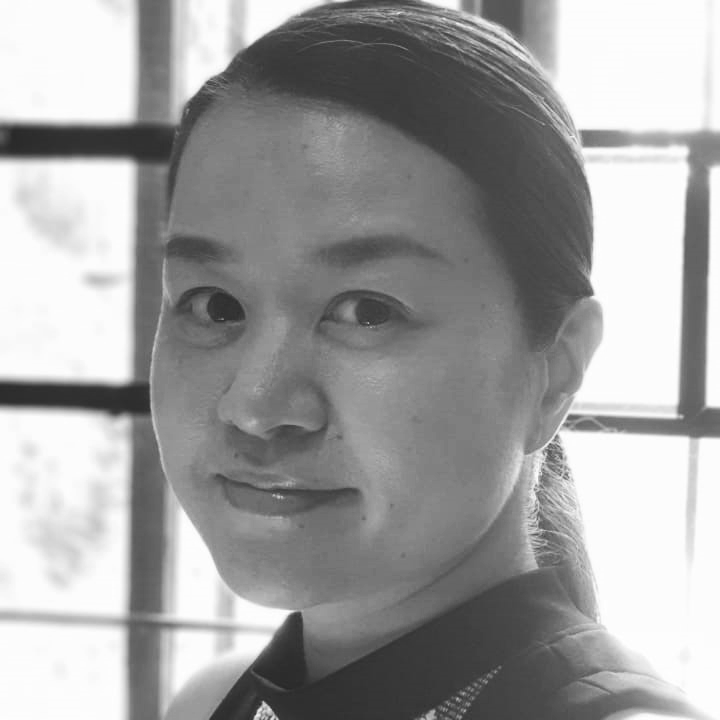 |
DiscussantAyame Suzuki(Doshisha University and Visiting Professor at the Department of Political Science, College of Liberal Arts, De La Salle University) |
Selective protection by the state
COVID-19 has clearly shown that the state is expected to be the core provider of protection: it has the power to control the movement of humans within and across its borders; it is also empowered to enforce rules and guidelines aimed at reducing infections and other health risks, and; it can mobilize more resources than any other entity to enhance public health administration and mitigate the economic impact of the pandemic on people and businesses.
Generally speaking, Malaysia’s state response, especially under the first Movement Control Order (MCO, March 18 – May 4), which was followed by the Conditional Movement Control Order (CMCO, May 5 – June 9) and the Recovery Movement Control Order (RMCO, June 10 onwards), can be evaluated as quite effective. For instance, the Prihatin Economic Stimulus Package released on March 27 was wide-ranging, providing cash benefits to lower income groups and workers in affected sectors, instituting a loan moratorium for students and businesses, dispersing wage compensation, and discounting utility bills. The size of the initial fiscal response of RM250 billion was bigger than that of most ASEAN countries, and was well received by the people, as is shown in a survey conducted by the Department of Statistics, in which 70 percent of the respondents found the package effective and 9 percent found it highly effective.1 In addition, for a certain duration following the MCO, the government was able to flatten the curve of rising infections (see Figure 1).
Tashny’s Sukumaran’s paper “Truth in the Time of Coronavirus,” however, prompts a rethinking over the role of the state in a pandemic. Her article eloquently points out that Malaysia’s state response was not sufficiently directed at marginalized groups such as migrants, refugees, women, and children. For instance, the government did not pay attention to migrant workers and refugees to a level proportionate to their higher infection rates of COVID-19. Despite this group’s continued high rates of infection, the government maintained its scant level of attention throughout the pandemic. Exploitation of and inadequate protection for the foreign workers amidst the health crisis incurred a series of international media coverage criticizing the Top Glove, the worlds’ largest rubber glove producer, among others2.
One may say that this lack of attention is not surprising given the decades-long chilly attitude of the Malaysian government toward the rights and welfare of migrants and refugees. However, in Singapore, the government has signaled a change in its attitude toward migrant workers by encouraging Singaporeans to appreciate their contribution and welcome them as a part of the community.3 The unprecedented health crisis seems to have prompted Singaporeans to reexamine their mindset toward migrant workers, resulting in an increased public awareness on their living and working conditions and extraordinary government spending on the medical care for them, although there are more rooms for improvements in terms of the general treatment.
Like Singapore, Malaysia’s economy highly depends on the input of its migrant workforce. International pressure is mounting for better treatment of migrants in Malaysia. Will the current pandemic pressure the Malaysian government to make a change in its stance toward migrant workers similar to its Singaporean counterpart? If not, what explains the continued marginalization of the migrant population?
Challenging the dominant narrative
The dominant narrative in Malaysia seems to associate refugees and migrant workers, especially the undocumented ones, to criminality. The narrative of criminalization of refugees and migrant workers dictates penalizing them rather than protecting them, and the state seems to exercise its power in line with this dominant narrative. On the other hand, some journalists, artists, actors, and academics strive to challenge this discourse and to present a more inclusive paradigm. “Truth in the Time” points out that as COVID-19 prompts all of us to “go more digital,” the pandemic enables such actors to adopt innovative online approaches to link people and thus strengthen their efforts.
Now that people see cyber space as a significant arena for networking and mobilizing, will there be a space for an innovative approach to effectively organize these forces and challenge and eventually change the dominant discourse? What role does media have in such a space?
Checking the state’s abuse of power
Sukumaran’s essay discusses numerous serious cases of the state’s abuse of power. Indeed, the pandemic has been used as an excuse to restrict the freedom of lawyers, journalists, activists, and others. The withholding of information and lack of accountability can also be observed, especially as competition among political parties intensifies.
While we have a list of the state’s abuse or misuse of power, there are also instances in which the state’s arbitrary power was somewhat curtailed. The primary example of this is the Muhyddin administration’s failed attempt to declare an Emergency in October. It is quite obvious that the administration was trying to use COVID-19 as an excuse to suspend the Parliament to avoid the rejection of a budget proposal and the eventual collapse of the government. In the face of the administration’s attempt, many critical articles were published, and the opposition and citizens voiced firm disapproval of the idea, resulting in the King’s rejection of the proposed Emergency Declaration.
What does this episode indicate? It may be that in Malaysia, the check against the government’s abuse of power is somehow working, if not as often as one wishes. It may not be strong enough to fully discredit the so-called “back-door government,” but it may be enough to check the government from having a freehand.
As we see from the above example, the opposition and civil society is not powerless in curtailing the state’s power. What role does and can the media have in checking the state’s abuse of power in the current situation?
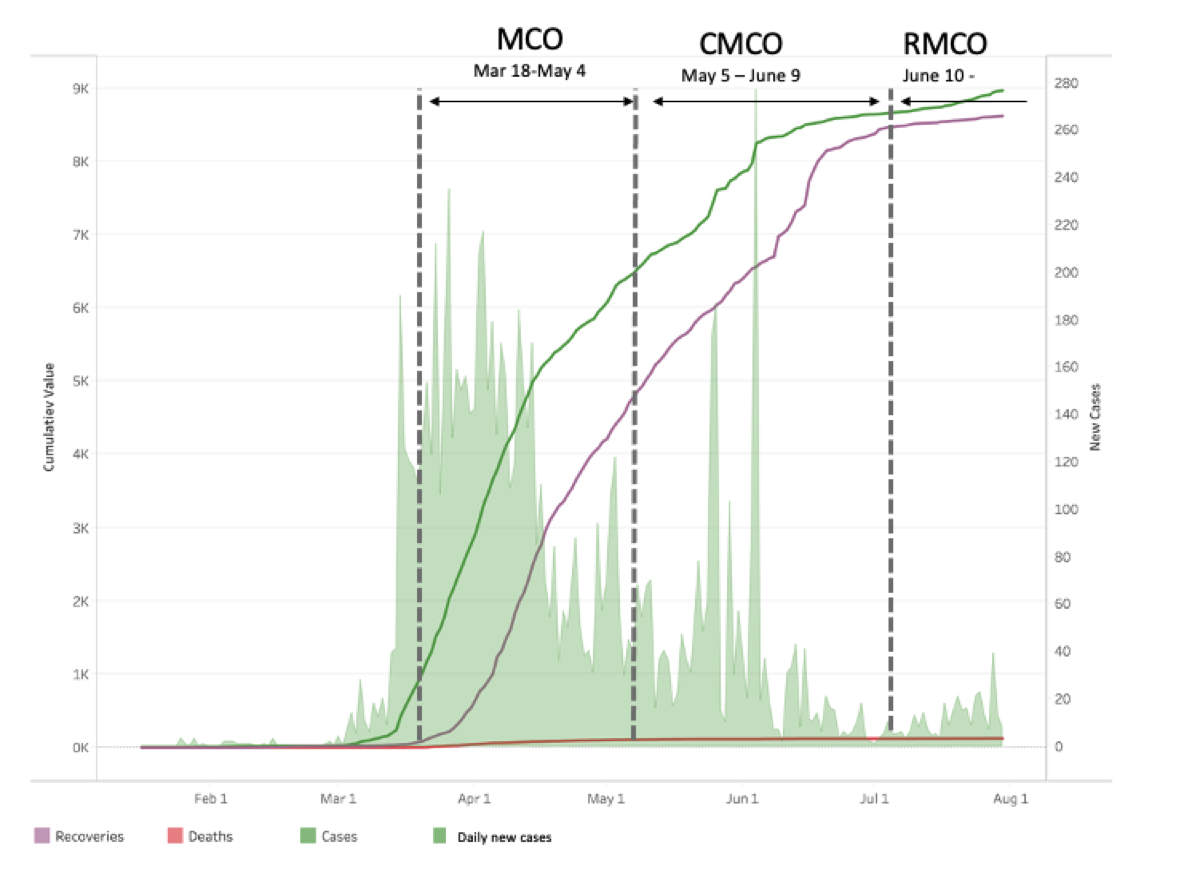
Figure 1 Cumulative Cases, Recoveries, Deaths, and Daily New Cases in Malaysia (January 16 – August 1, 2020)
Sources: Kenyataan Akhbar, Ketua Pengarah Kesihatan Malaysia (Director General of Ministry of Malaysia, Press Release)and Kenyataan Media Pejabat Perdana Menteri (Prime Minister’s Office, Media Release)
Notes
- 1 Department of Statistics Malaysia, “Social Survey: Effects of COVID-19 on the Economy and Individual (ROUND2).” This survey was conducted from April 10-24, 2020 with 41,296 respondents. Available online at: https://www.dosm.gov.my/v1/uploads/files/covid-19/Infographic.pdf. Last accessed on January 16, 2021
- 2 Gurardian. 2020. “NHS urged to avoid PPE gloves made in ‘slave-like’ conditions,” April 23. Available online at https://www.theguardian.com/global-development/2020/apr/23/nhs-urged-to-avoid-ppe-gloves-made-in-slave-like-conditions-coronavirus; “Migrant worker at Malaysian medical glove manufacturer dies of COVID-19,” December 14. Available online at https://www.theguardian.com/world/2020/dec/14/worker-in-malaysian-medical-glove-factory-dies-of-covid-19-top-glove Last accessed: January 24. 2021.
- 3 Reuters. 2020. “Singapore calls for ‘mindset’ change as migrant workers are rehoused,” June 20. Available online at https://www.reuters.com/article/us-health-coronavirus-singapore-trfn/singapore-calls-for-mindset-change-as-migrant-workers-are-rehoused-idUSKBN23H1EO Last accessed: January 16, 2021.
Ayame SUZUKI majored in political science at Keio University (2000) and obtained a PhD in International Relations from the University of Tokyo (2008). She taught at the University of Malaya (2010-2011) and Fukuoka Women’s University (2011-2014) before assuming her current position. Her substantive research on politics and law in Malaysia was published as Freedom and Order in “Democracies”: Reconsidering Malaysia’s Political Regime (Kyoto University Press, 2010, in Japanese), for which she was awarded the Masayoshi Ohira Memorial Award in 2011. Her latest publication includes a co-authored chapter with the late Professor Dr. Lee Poh Ping titled “Malaysia’s Hedging Strategy, a Rising China, and the Changing Strategic Situation in East Asia,” in Dittmer and Ngeow, eds. Southeast Asia and China: A Contest in Mutual Socialization (World Scientific, 2017).
Other Presentations
- Slow Virus Response, Quick Rights Suppression: The Philippine Covid-19 Experience
- Is the COVID-19 Lockdown Undermining Journalism in Myanmar?
- Regressive Indonesian Freedom? The Rise of Digital Harassment against Journalists and Civil Society in the midst of COVID-19 pandemic
- Thai Press’ Over-reliance on Government Information about COVID-19

